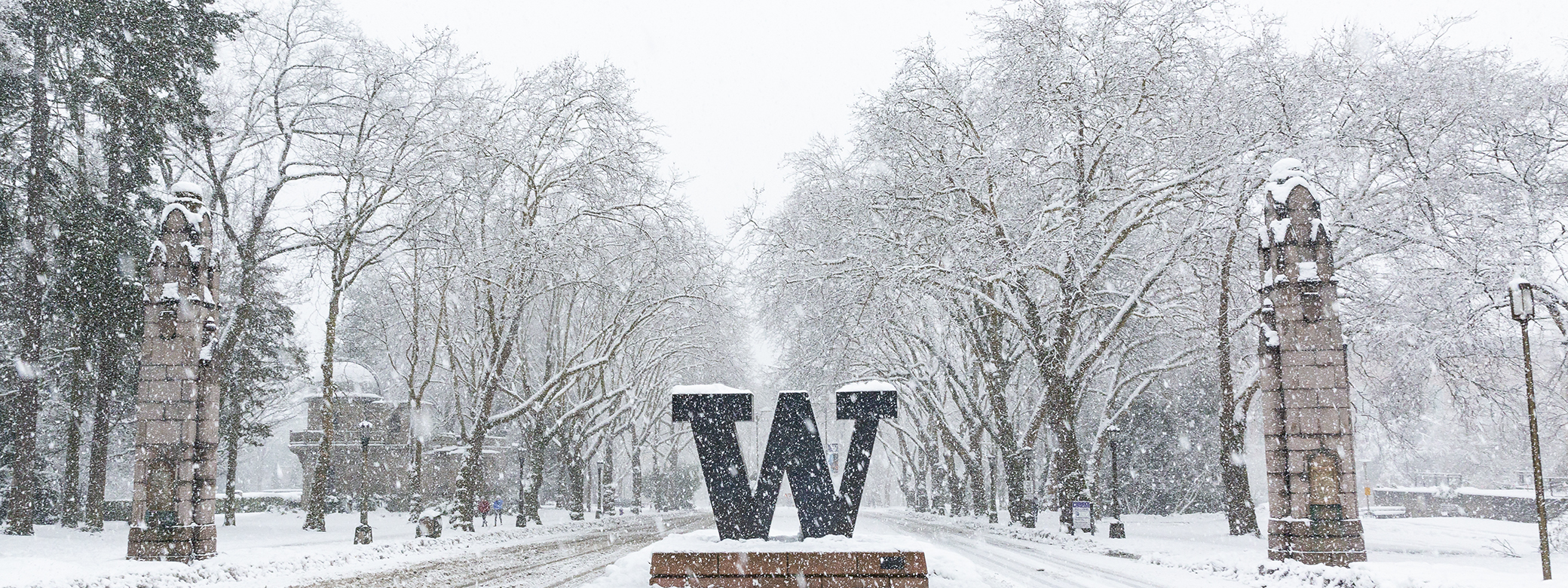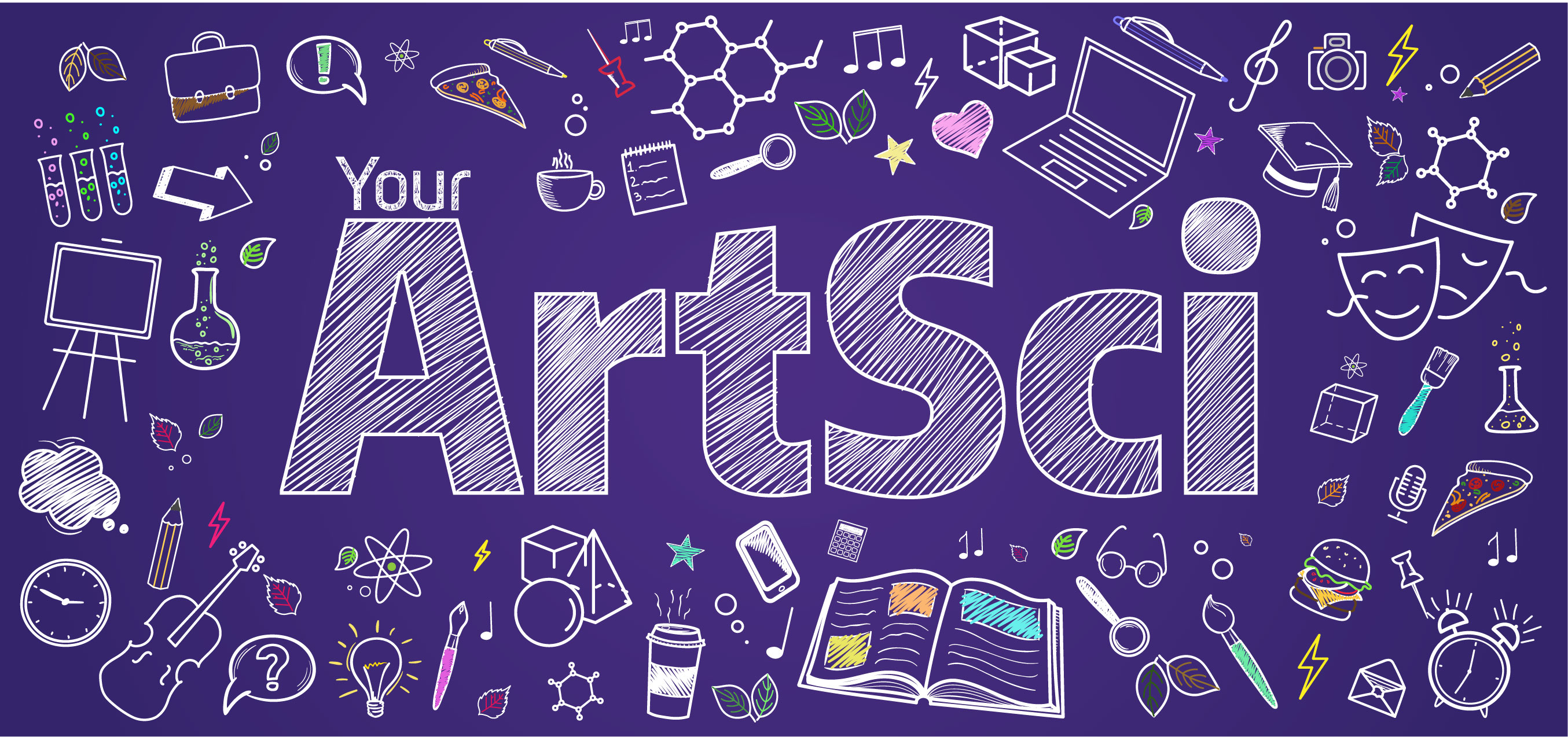
As you think about winter quarter 2024 course registration, check out these unique Arts & Sciences offerings. They’re open to all students, have no prerequisites, and fulfill Areas of Knowledge requirements as noted.
Science for Everyone
Religion, Past & Present
Our World
Literature & Belonging
Film
Identity & Culture
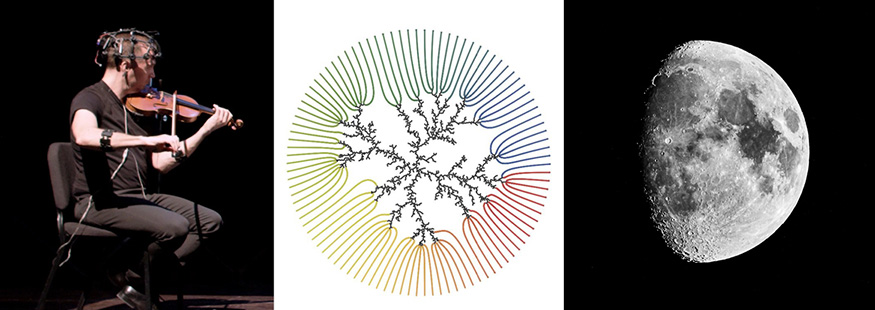
Science for Everyone
PHYS 107: Quantum Mechanics, Relativity, and the Foundations of Our Modern Technological World
Using no math, this course charts the history of modern technology and the key quantum mechanics and relativity behind the current and near future machines that shape our lives, from MRI machines to quantum computers to cell phones that can pinpoint your location. This course, while advanced in its concepts, is designed for any UW student with an interest in understanding how their near-future world will work.
Miguel Morales, Physics
5 credits, NSc
MATH 180: A Walk in the Garden of Mathematics
(Listed as “Topics in Mathematics for Non-Science Majors”)
This relaxed introduction to mathematics is not about formulas and equations. It's about fundamental ideas in mathematics, with a special emphasis on mathematics as an evolving science. Just as there are things about physics and chemistry that we don't understand, there are things about integers that are just as (or even more) mysterious! Discover why some people insist math is fun when memorizing trig identities is anything but fun.
Stefan Steinerberger, Mathematics
3 credits, NSc, RSN
DXARTS 490A: Art and the Brain
(listed as “Advanced Topics in Digital Arts & Experimental Media”)
Explore the intersections between art, imagination/hallucination, and neuroscience. The course will cover a range of topics about brain functions and their relationships to the creation and perception of art. Students will also learn about EEG, EMG, and other devices that are part of the DXARTS Brain Lab and create experimental projects based on the various brain functions that will be explored.
Richard Karpen, DXARTS
Thomas Deuel, DXARTS; MD at Swedish Hospital
Eberhard Fetz, Physiology and Biophysics; DXARTS
5 credits, A&H credit by arrangement
ASTR 105: Exploring the Moon
For an astonishingly short period of time — July 1969 to December 1972 — humans walked on another world. We have not accomplished this feat since. Why did we do this, how did we do this, what did we learn, and why do we want to go back?
Toby Smith, Astronomy
5 credits, NSc
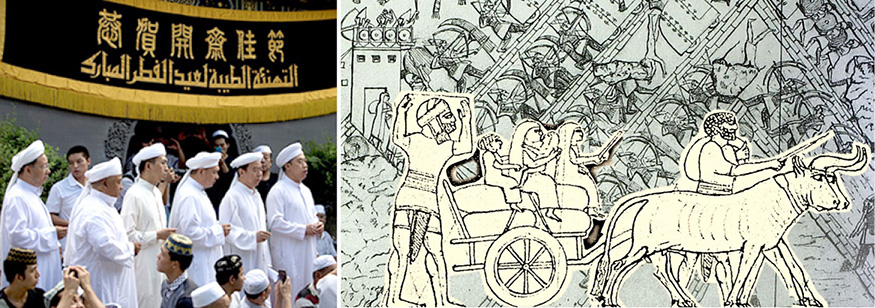
Religion, Past & Present
MELC 311A / MELC 511 A: The Archaeology of Biblical Israel
Can archaeology “prove” the Bible? Should it even try? In the charged realm of biblical archaeology, the intersection of text and objects becomes a battleground of belief. Embark on an intellectual expedition into a field where the examination of the past is uniquely contentious and profoundly relevant to the present. We look not just at the evidence, but at the field itself, including challenges such as forgeries and scholarly biases.
Corinna Nichols, Middle Eastern Languages and Cultures
5 credits, SSc
RELIG 201: Introduction to World Religions - Western Traditions
Learn about the history of Western religious traditions, with primary attention to the Semitic religions — Judaism, Christianity, and Islam — including their ancient world background, with emphasis on basic conceptual and symbolic structures.
Mika Ahuvia, International Studies/Jewish Studies
5 credits, SSc
MELC 358 / MELC 559 / ANTH 369 / JSIS 483/ JSIS 583: Islam and Muslims in China
Examine the lived experiences of Muslims in China — how Islam informs culture, creates social and spiritual meaning, and relates to the political and social lives of Muslims. Learning about the dynamic cultures and critical interpretive approaches of underrepresented Muslim communities can help students analyze their own cultural assumptions and constructively inform their own lived experiences.
Talant Mawkanuli, Middle Eastern Languages and Cultures
5 credits, SSc, DIV
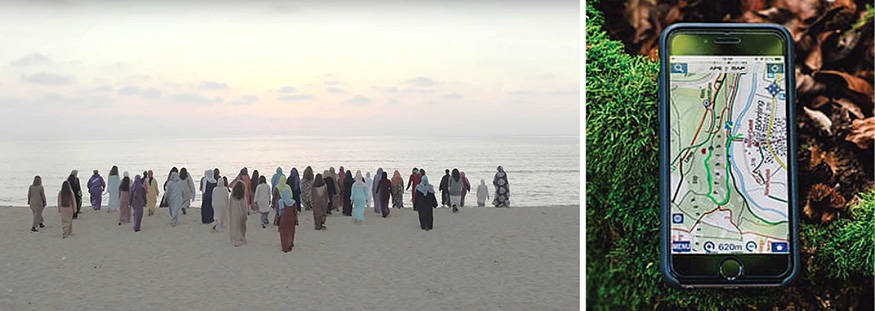
Our World
HSTAFM 163: Modern Middle East
Explore the social, religious, and political upheavals that have shaken the Middle East region from the nineteenth century to the present. The course will examine imperial powers, anti-imperialism, sectarianism, religious and secular movements, and authoritarianism, but also everyday life, including gender and sexuality, family, childhood, and popular culture.
Arbella Bet-Shlimon, History
5 credits, DIV, SSc
JSIS 201: The Making of the 21st Century
Over the last hundred years (or so), there have been numerous attempts to impose economic, political, military, and cultural frameworks in the name of various ideals like peace, security, democracy, and development. Many of those attempts have led to disastrous consequences. This course will explore many of those efforts, as well as the interplay between structures and actors in various processes of international political economy. Learn how global forces structure the decisions of elite and popular sectors, as well as how political actors negotiate, contest, and transform global forces.
David Bachman, International Studies
5 credits, SSc, W
GEOG 258: Digital Geographies
Explore the use and societal impacts of contemporary digital spatial technologies, including internet mapping, handheld geographic technologies, location-based services, spatial applications of social media, the geoweb, and traditional geographic information systems (GIS). Students will develop hands-on experience using online digital spatial tools for geovisual representation, as well as skills for evaluation and critique of digital data and maps.
Erin McElroy, Geography
5 credits, SSc
SOC 301 C: Inclusion and Exclusion in Contemporary Immigration
(listed as "Special Topics in Sociology")
Learn about the evolution of immigration policy over time and the implications this has had on immigrant experiences. How does increasingly restrictive immigration policy shape the experiences of immigrants? What are the social and political factors that facilitate or hinder immigrant integration? How does immigration enforcement and policing create a chilling effect? These are just some of the questions to be explored.
Anne Tseng, Sociology
5 credits, SSc
GWSS 490: Digital Capitalism and Data Colonialism
Listed as “Special Topics in Women Studies”
How are ‘digital’ and ‘data’ implicated in global relations of power? Uncover the links between capitalism, colonialism and data-driven technologies — including digital labor platforms, AI, and biometrics — through podcasts, news articles, films, and academic texts. Students will learn podcasting skills and gain other skills helpful for those interested in activism, NGOs, media, government and more.
Kavita Dattani, Gender, Women & Sexuality Studies
5 credits, SSc, DIV
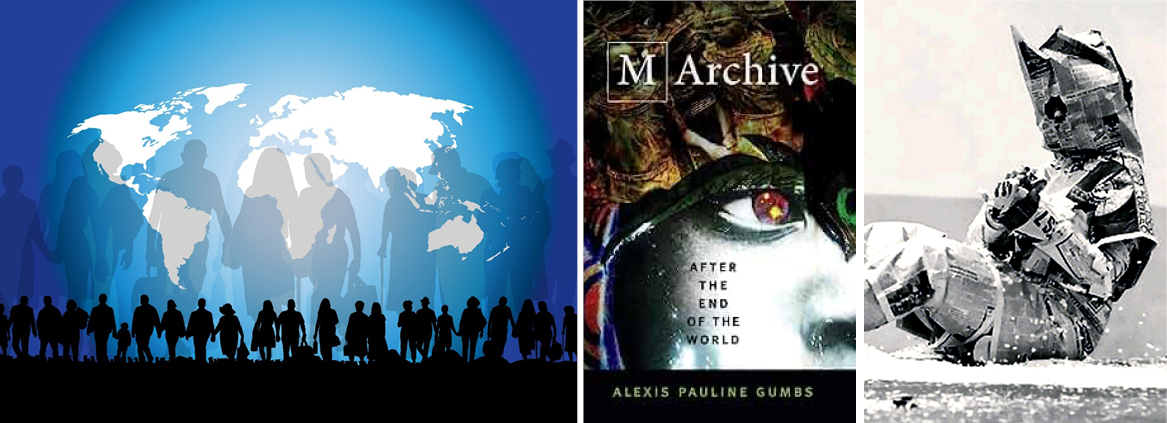
Literature & Belonging
SLAVIC 320 A / GLITS 313 A / C LIT 251 A: Migrant Writers & Their Journeys
(listed as “The Other Europe: Post-World War II East European Fiction”)
This class is about the journeys of millions of people who leave their homelands hoping to start their lives somewhere else, in flight from harsh conditions or in pursuit of personal growth. The course provides us with the opportunity to reflect on our backgrounds: where we come from and where we might be going.
Piotr Florczyk, Slavic Languages & Literatures
5 credits, A&H
CHID 250 A: The Crafting of Elsewhere: Black Speculative Fiction Through Black Feminist and Queer Theories
(listed as “Special Topics”)
How can a critical study of speculative fiction and art lead us to the ecstatic engagement of material conditions existing elsewhere? Engage in discussions of Black, queer, feminist art and literature to see their world-building and community-building potential. Assignments will be multimodal public-facing projects with the encouragement of peer collaborations.
Brittney Frantece, English, Comparative History of Ideas
5 credits, SSc, W
SPAN 317 / GLITS 314 C: Mass Culture in Latin American Literature
(listed as “Literature Across Genres/Modes”)
How do Latin American writers experience, and influence, an often rapidly changing world in unpredictable ways? In this course, we’ll look at how they illustrate, react to, and conceptualize mass culture — from comics to serial novels to a wide variety of broadcast media.
Elizabeth Hochberg, Spanish & Portuguese Studies
5 credits, A&H, W
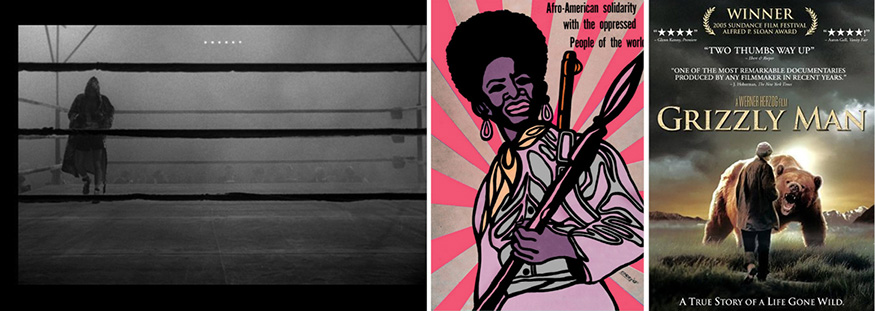
Film
CMS 270: New Hollywood
(listed as “Perspectives on Film: Introduction”)
Learn about New Hollywood cinema — its development in the 1970s and 1980s and the new model of film production that emerged after the decline of the classical studio system. We will discuss the artistic experiments that made this such a crucial period in the history of American cinema and conclude by examining the rise of the blockbuster and the emergence of an independent film sector, two phenomena that remain key elements of the movie world today.
James Tweedie, Cinema & Media Studies
5 credits, A&H
AFRAM 350: Black Aesthetics
This course will critically explore 1970s films labeled as "Blaxploitation." We will look at historical context, assess the motivations and intentions of Hollywood studios/content creators, analyze the symbolism embedded in scripts or character representation, and more. Students will critically discuss films that have informed how we understand aesthetics today — films that address Black Power, queerness, sex work, and other major themes of the 20th century.
M. Aziz, American Ethnic Studies
5 credits, A&H, SSc
CMS 271: Great Directors: Werner Herzog
(listed as “Perspectives on Film: Great Directors”)
Explore the making of Werner Herzog as a legendary filmmaker and cultural icon. Herzog’s many films include Aguirre, the Wrath of God; Nosferatu -The Vampyre; Grizzly Man; and Cave of Forgotten Dreams. We will also consider his related activities (publishing books, directing operas, acting in films) as well as the many parodies and self-parodies of him and his work, while questioning the very idea of the “great director” and its effects in film culture.
Eric Ames, Cinema & Media Studies
5 credits, A&H
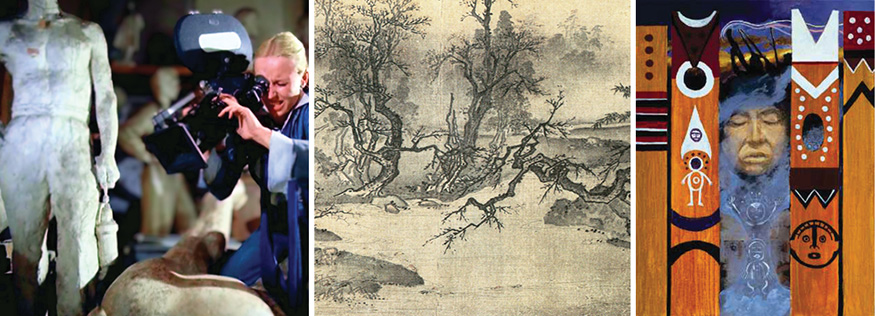
Identity & Culture
PSYCH 257 / GWSS 257: Psychology of Gender
This course explores aspects of gender that you may not have considered or thought to question. Covering topics that include biological and environmental influences on gender differences in behavior, you will be challenged to examine stereotypes and assumptions, and you’ll gain a new perspective on your own experiences and the social world around you.
Ann Culligan, Psychology
5 credits, SSc, DIV
GERMAN 285 A / HONORS 211 B: Diversity in the Middle Ages
(listed as “Representation and Diversity”)
Gain a new understanding of the “not-so-dark” Middle Ages by looking at aspects of diversity at that time, including race and racism, religion (specifically Islam, Judaism, and Christianity), disability, and gender. The class will discuss these topics in the context of literature and art, museums, pop culture, and traveling.
Annegret Oehme, German Studies
5 credits, SSc, DIV
ART H 212: Chinese Art and Visual Culture
Examine jade, ceramics, bronze, calligraphy, printing, painting, and gardens at moments in history when each was especially innovative and important. The focus on materials will alert us to the interplay between visual design and technique of execution. Many of China’s luxury materials had an impact on the world beyond China’s borders; ceramics even stimulated the development of certain branches of modern Western science.
Haicheng Wang, Art History
5 credits, A&H, SSc
POLSH 420 A /C LIT 320 C: Culture & Communism
(listed as “Modern Polish Literature in English”)
How do authors and artists negotiate their position between censorship and creative expression? How does culture work for or against the system? Are books, films, and pictures always political? Learn about literature, cinematography, and art in Poland and East Central Europe during communism — the complexity and variety of cultural production between 1945 and 1989 and its fascinating connection to ideology and politics.
Agnieszka Jeżyk, Slavic Languages & Literatures
5 credits, A&H
AIS 305: American Indian and Indigenous Storytelling
Explore American Indian and Indigenous mythologies and storytelling with two passionate and experienced storytellers, with particular emphasis on the Coast Salish tribal groups of western Washington and the traditions of the Cherokee Nation of northeastern Oklahoma. Through hearing, reading, interpreting, memorizing, and sharing traditional stories, myths, and legends, students learn how stories impart concepts, values, morals, science, history, beliefs, and philosophies.
Chris Teuton and Roger Fernandes, American Indian Studies
5 credits, A&H, DIV
More Stories

AI in the Classroom? For Faculty, It's Complicated
Three College of Arts & Sciences professors discuss the impact of AI on their teaching and on student learning. The consensus? It’s complicated.

What Students Really Think about AI
Arts & Sciences weigh in on their own use of AI and what they see as the benefits and drawbacks of AI use in undergraduate education more broadly.

A "gesture" to jump-start careers
To prepare students for professional success, the UW College of Arts and Sciences offers “gesture,” a mock startup company where student interns gain skills that employers seek.
